Last Updated on August 31, 2023 by Alina Zárate
If you have struggled to understand the concept of sustainability, you are not alone. Sustainability is an incredibly complex topic and there is no universally accepted definition of it. For many, sustainability is defined as meeting our own needs without compromising the ability of future generations to meet their own needs. For others, sustainability is simply avoiding the depletion of natural resources in order to maintain an ecological balance. And still others define sustainability as a balance between environment, equity and economy. So with all of these definitions, how do we know which one is correct?
In 2015, the United Nations adopted the 17 Sustainable Development Goals which have served as a guide to sustainability and sustainable development globally since then. The United Nations defines sustainable development as the process and pathways to achieving sustainability through four key dimensions: society, environment, culture, and economy. Sustainability is, therefore, the long-term result of the implementation of the Sustainable Development Goals. Sustainability encompasses a lot of different issues and I thought that I would take the opportunity in this blog to outline all of the different Sustainable Development Goals in the hopes of providing you with a more holistic view of what sustainability is and the countless ways that we can all contribute to sustainable development.
17 Sustainable Development Goals
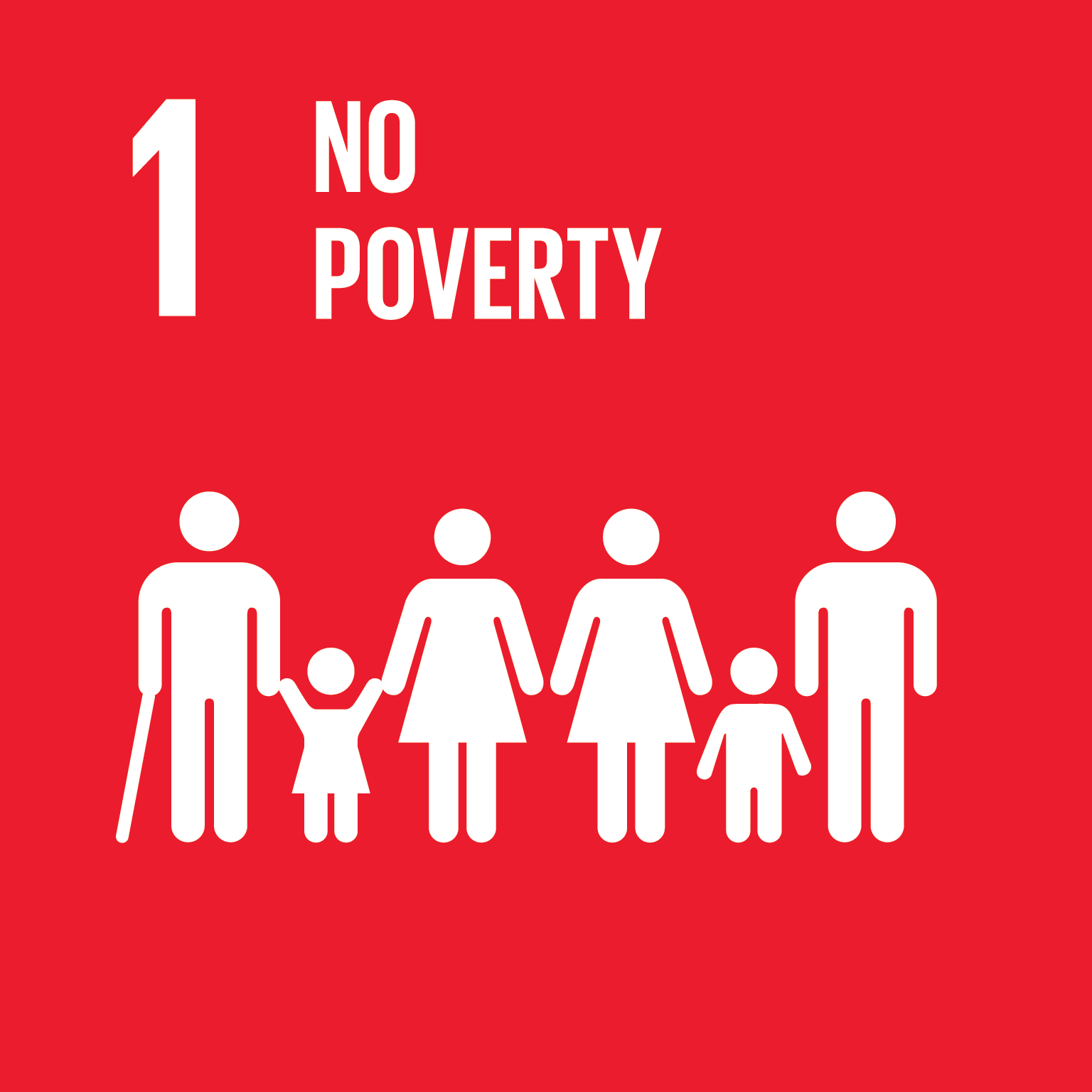
Goal 1: No Poverty
Why is this important for sustainable development?
The No Poverty Sustainable Development Goal focuses on the social and economic aspects of sustainability. With 11% of the world population living in extreme poverty, ending poverty would not only reduce global human suffering but also lead to economic growth, increased social cohesion and decrease vulnerability to disease and natural disasters.
What progress has been made to achieve this goal?
The primary goal set by the UN is to eradicate poverty in all its forms everywhere by 2030. While the COVID-19 pandemic has made this goal challenging, efforts continue to be made in the form of social services and food aid. Increases in policymaking around poverty provide an optimistic path forward in the effort to end poverty.
Why it matters
Learn more about the importance of no poverty.

Goal 2: Zero Hunger
Why is this important for sustainable development?
The Zero Hunger Sustainable Development Goal focuses on the social aspect of sustainability. There are 800 million people worldwide who suffer from hunger. Efforts to eliminate hunger will have a positive impact on lives globally and encourage improved agricultural practices, reduced food waste and improved nutrition.
What progress has been made to achieve this goal?
The primary goal set by the UN is to end hunger, achieve food security and improved nutrition and promote sustainable agriculture on a global scale. While levels of food waste are still high and biodiversity among crops continues to decrease, efforts are being made to lower food prices and increase food and agricultural aid to developing countries.
Why it matters
Learn more about the importance of zero hunger.

Goal 3: Good Health and Well-Being
Why is this important for sustainable development?
The Good Health and Well-being Sustainable Development Goal focuses on the social and environmental aspects of sustainability. The COVID-19 pandemic has demonstrated the importance of expanding health resources and care on a global scale. The expansion of vaccinations, investment in universal health coverage and other key areas will help prevent a future pandemic.
What progress has been made to achieve this goal?
The primary goal set by the UN is to ensure healthy lives and promote well-being for all at all ages. There is a lot of progress that has been made in global health such as addressing HIV/AIDS, malaria, measles and other key diseases. The health of mothers and children has increased and immunization efforts have expanded. The COVID-19 pandemic has halted progress in some areas.
Why it matters
Learn more about the importance of good health and well-being.
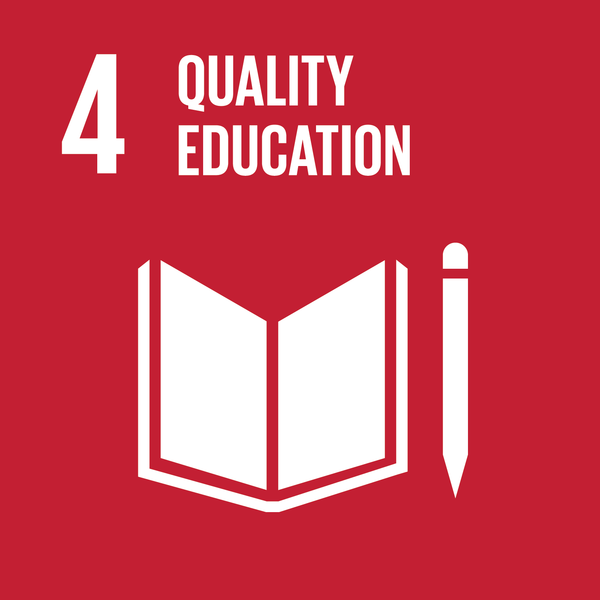
Goal 4: Quality Education
Why is this important for sustainable development?
The Quality Education Sustainable Development Goal focuses on the social and cultural aspects of sustainability. 57 million children worldwide remain out of school. Ensuring that all children get a quality education is very important as it is a key way to help break the cycle of poverty, reduce inequalities, improve health, promote sustainability, and foster peace.
What progress has been made to achieve this goal?
The primary goal set by the UN is to ensure inclusive and equitable quality education and promote lifelong learning opportunities for all. Significant gains have been made in this area as enrollment in primary education in developing countries reached 91%. However, as the COVID-19 pandemic has shown, many students around the world have fallen behind in their learning.
Why it matters
Learn more about the importance of quality education.

Goal 5: Gender Equality
Why is this important for sustainable development?
The Gender Equality Sustainable Development Goal focuses on the social and cultural aspects of sustainability. While women represent half of the world’s population, less than 1 in 3 senior and middle management positions are held by women. Promoting gender equality and education for women helps create a healthier society by promoting education and health among other things.
What progress has been made to achieve this goal?
The primary goal set by the UN is to achieve gender equality and empower all women and girls. Over the past decade, child marriage has declined significantly and the number of women in the global labor force had increased. Unfortunately, the COVID-19 pandemic has reversed many gains in gender equality as the burden of home care and child-rearing has fallen disproportionately on women.
Why it matters
Learn more about the importance of gender equality.
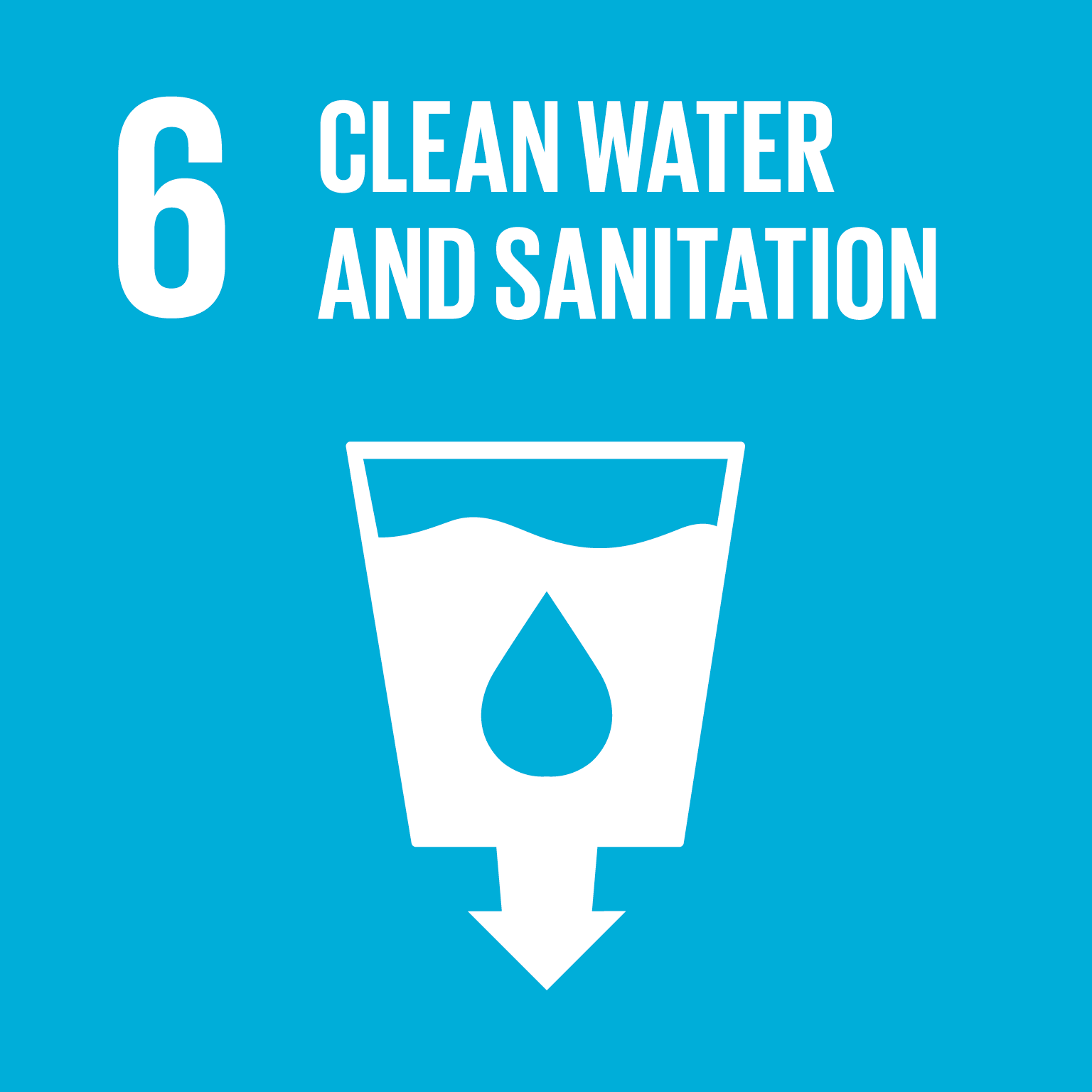
Goal 6: Clean Water and Sanitation
Why is this important for sustainable development?
The Clean Water and Sanitation Sustainable Development Goal focuses on the social and environmental aspects of sustainability. This involves a wide range of key issues including global access to clean drinking water, basic sanitation services like toilets or latrines, water scarcity, water pollution, degraded water-related ecosystems, and stress caused by increased global water use.
What progress has been made to achieve this goal?
The primary goal set by the UN is to ensure availability and sustainable management of water and sanitation for all. Access to safe drinking water and sanitation services has increased in the past two decades. Efforts are being made to protect and preserve water bodies from pollution and further degradation. Water use efficiency has also increased across all economic sectors.
Why it matters
Learn more about the importance of clean water and sanitation.

Goal 7: Affordable and Clean Energy
Why is this important for sustainable development?
The Affordable and Clean Energy Sustainable Development Goal focuses on the social, environmental, and economic aspects of sustainability. Energy systems support all sectors of society including business, medicine, and agriculture to name a few. Promoting clean energy will aid in efforts to combat global warming and increase quality of life for millions of people.
What progress has been made to achieve this goal?
The primary goal set by the UN is to ensure access to affordable, reliable, sustainable, and modern energy for all. Global access to electricity has increased in the past decade and there the electricity sector has increasingly been transitioning to renewable energy and improving energy efficiency but, unfortunately, these efforts are still well below global goals.
Why it matters
Learn more about the importance of affordable and clean energy.

Goal 8: Decent Work and Economic Growth
Why is this important for sustainable development?
The Decent Work and Economic Growth Sustainable Development Goal focuses on the social and economic aspects of sustainability. Many of the other sustainability goals such as No Poverty or Zero Hunger are only possible through well-paid jobs. Expanding access to good stable jobs is central to increasing economic development, promoting education and fostering peace.
What progress has been made to achieve this goal?
The primary goal set by the UN is to promote inclusive and sustainable economic growth, full and productive employment and decent work for all. The COVID-19 pandemic caused the worst global economic recession since the Great Depression and has reversed many of the gains made in past decades. Global unemployment increased by 33 million in 2020, particularly in young people and women.
Why it matters
Learn more about the importance of decent work and economic growth.
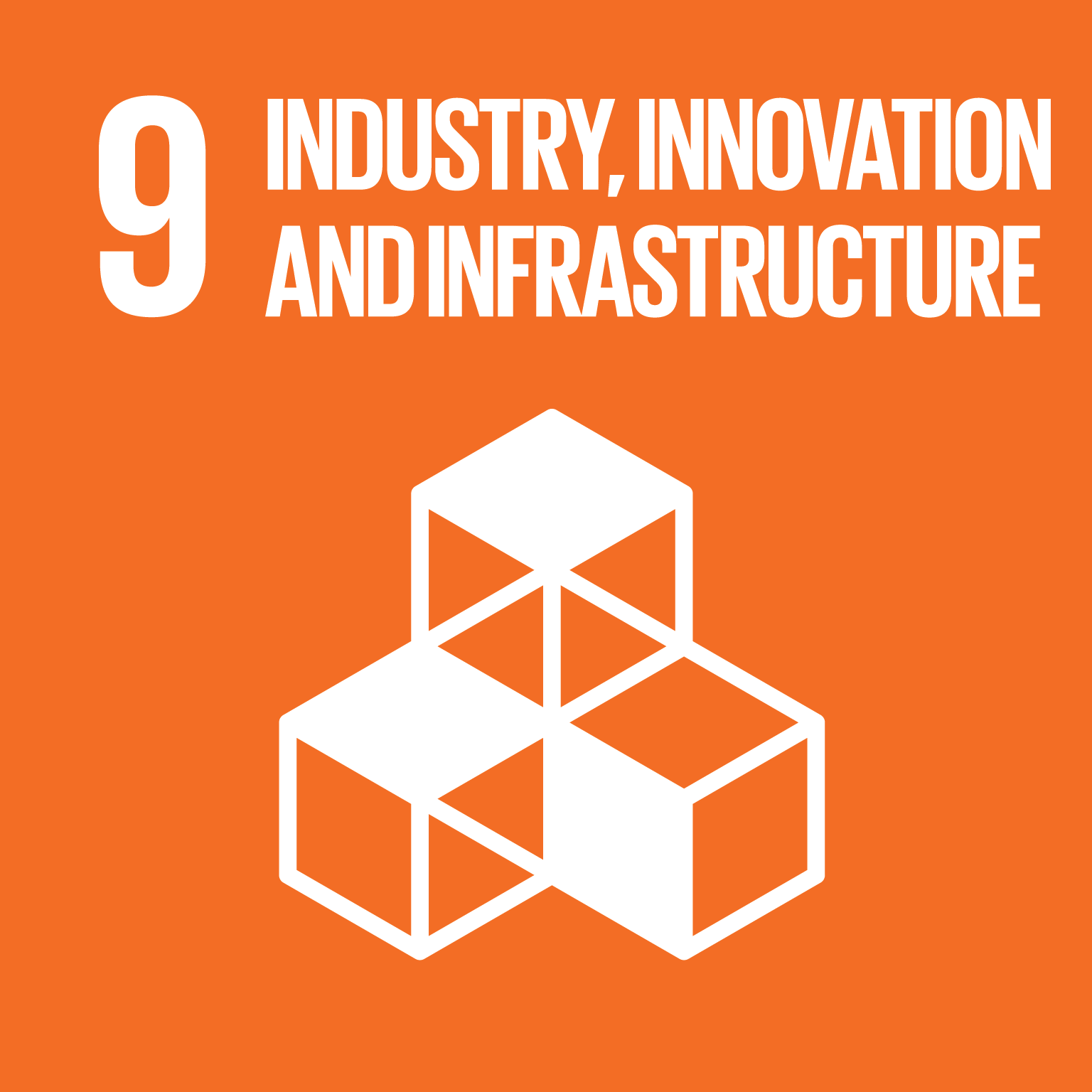
Goal 9: Industry, Innovation and Infrastructure
Why is this important for sustainable development?
The Industry, Innovation and Infrastructure Sustainable Development Goal focuses on the social, economic, cultural, and environmental aspects of sustainability. Investments in infrastructure, technology, and sustainable industrial development are key components to economic growth, social development, and efforts to mitigate the effects of climate change.
What progress has been made to achieve this goal?
The primary goal set by the UN is to build resilient infrastructure, promote inclusive and sustainable industrialization and foster innovation. While the COVID-19 pandemic has had significant social and economic implications it has also offered opportunities to expand industrialization and introduce important technologies to developing countries.
Why it matters
Learn more about the importance of industry, innovation and infrastructure.

Goal 10: Reduced Inequalities
Why is this important for sustainable development?
The Reduced Inequalities Sustainable Development Goal focuses on the social aspect of sustainability. The elimination of inequalities based on income, sex, age, disability, sexual orientation, race, class, ethnicity, religion, and opportunity is an important step in social development which will then contribute to economic development and prevention of environmental degradation.
What progress has been made to achieve this goal?
The primary goal set by the UN is to reduce inequality within and among countries. Prior to the pandemic, a modest reduction in inequality had been made in areas such as income inequality. However, the COVID-19 pandemic has exacerbated existing inequalities within and among countries and territories with vulnerable populations and poor countries suffering the most.
Why it matters
Learn more about the importance of reduced inequalities.
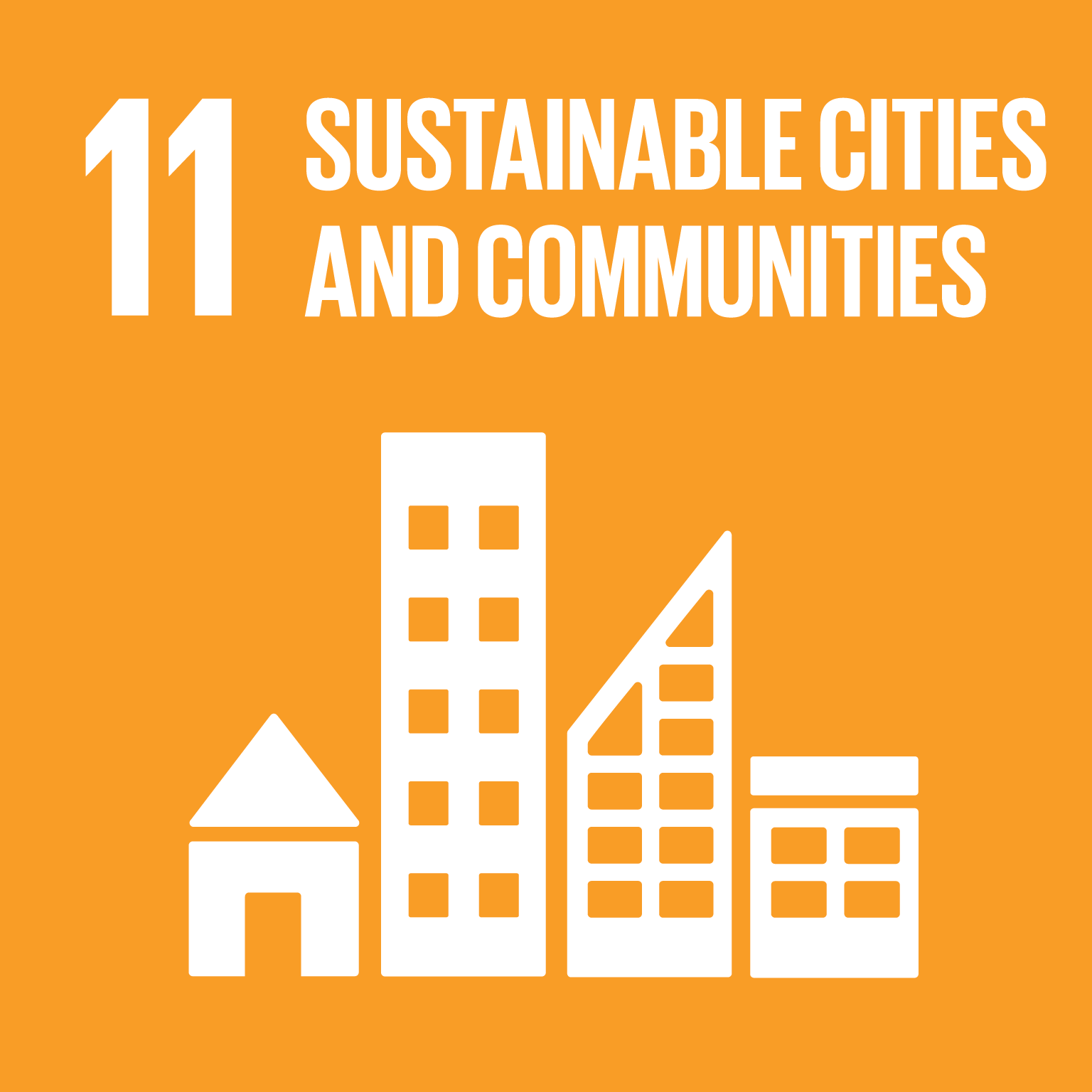
Goal 11: Sustainable Cities and Communities
Why is this important for sustainable development?
The Sustainable Cities and Communities Sustainable Development Goal focuses on the social, economic, cultural, and environmental aspects of sustainability. With 5 billion people projected to live in cities by 2030, creating sustainable cities and communities will play a key role in promoting social development, economic growth, and climate change mitigation among other things.
What progress has been made to achieve this goal?
The primary goal set by the UN is to make cities and human settlements inclusive, safe, resilient, and sustainable. Much work still needs to be done to create more sustainable cities as rising numbers of slum dwellers, worsening air pollution, disappearing open public spaces and limited convenient access to public transportation continue to be problems for urban areas across the globe.
Why it matters
Learn more about the importance of sustainable cities and communities.

Goal 12: Responsible Consumption and Production
Why is this important for sustainable development?
The Responsible Consumption and Production Sustainable Development Goal focuses on the social, economic and environmental aspects of sustainability. Unsustainable consumption and production have led to massive planetary crises of climate, biodiversity, and pollution. Efforts to transition to circular economies through increased efficiency and reduced waste are essential.
What progress has been made to achieve this goal?
The primary goal set by the UN is to ensure sustainable consumption and production patterns. While fossil fuel subsidies have declined and the adoption of sustainable policies has increased, there is still much work to be done with regard to reducing food, plastic, and electronic waste as well as recycling infrastructure, industrial efficiency, and shifting consumption habits.
What it matters
Learn more about the importance of responsible consumption and production.
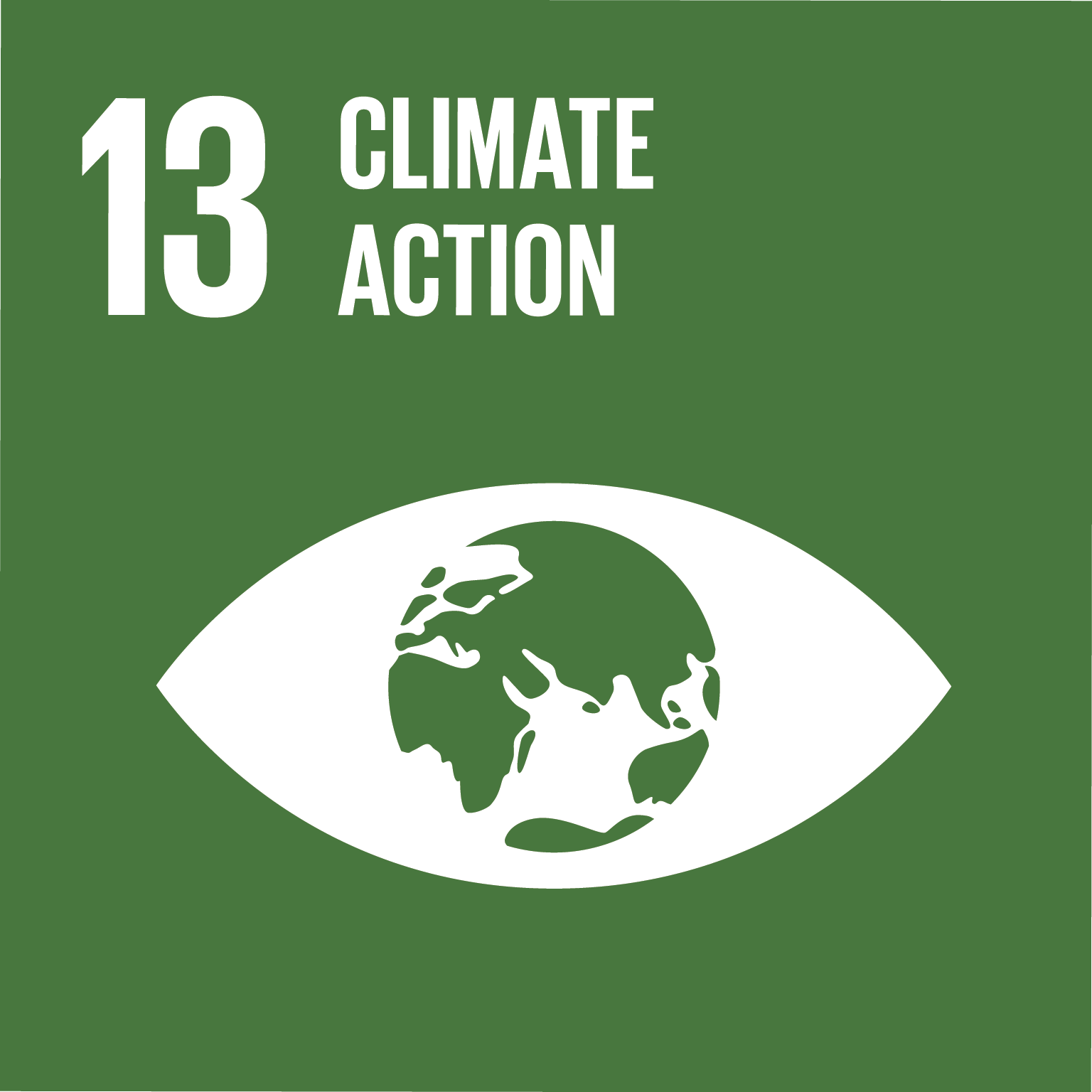
Goal 13: Climate Action
Why is this important for sustainable development?
The Climate Action Sustainable Development Goal focuses on the environmental aspect of climate change. Human activities are causing climate change and are threatening our future on this planet. Therefore, it is important that steps be taken on a global scale to limit global temperature rises to below 2 degrees and prevent even worse effects of climate change.
What progress has been made to achieve this goal?
The primary goal set by the UN is to take urgent action to combat climate change and its impacts. While there are many efforts being made around the world to combat climate change and cut carbon emissions, current measures are not doing nearly enough as atmospheric concentrations of greenhouse gases continue to rise and the effects of global warming continue to worsen.
Why it matters
Learn more about the importance of climate action.
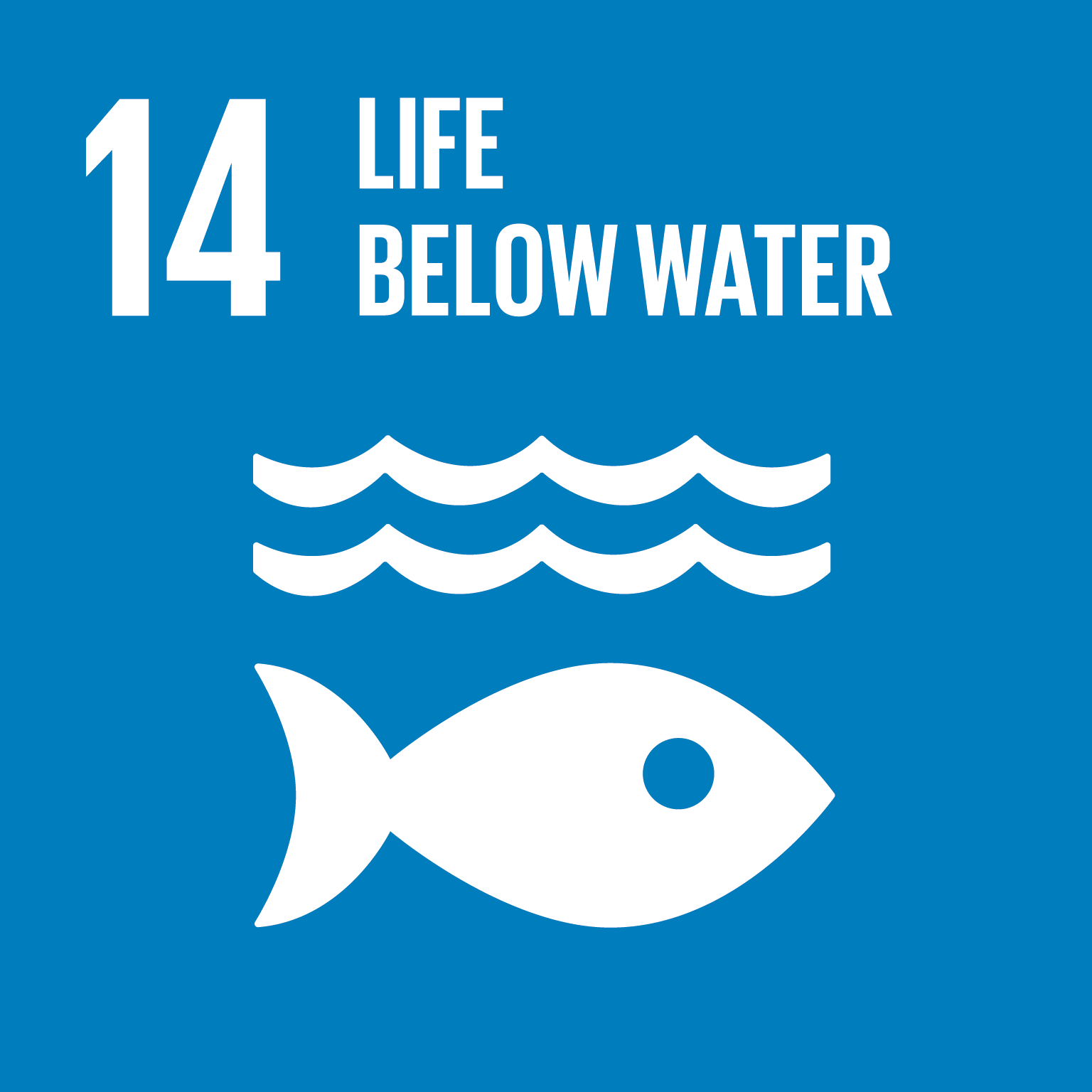
Goal 14: Life Below Water
Why is this important for sustainable development?
The Life Below Water Sustainable Development Goal focuses on the environmental aspect of sustainability. Oceans make up the planet’s largest ecosystem. They play an essential role in our economies as well as in supporting the world’s biodiversity and regulating the global climate system. Increased debris, rising temperatures, and loss of biodiversity threaten them.
What progress has been made to achieve this goal?
The primary goal set by the UN is to conserve and sustainably use oceans, seas, and marine resources for sustainable development. Increased monitoring and surveillance has been successful in restoring overfished stocks but much work still needs to be done in reducing water pollution and slowing the rate of sea warming and ocean acidification which threatens marine life.
Why it matters
Learn more about the importance of life below water.
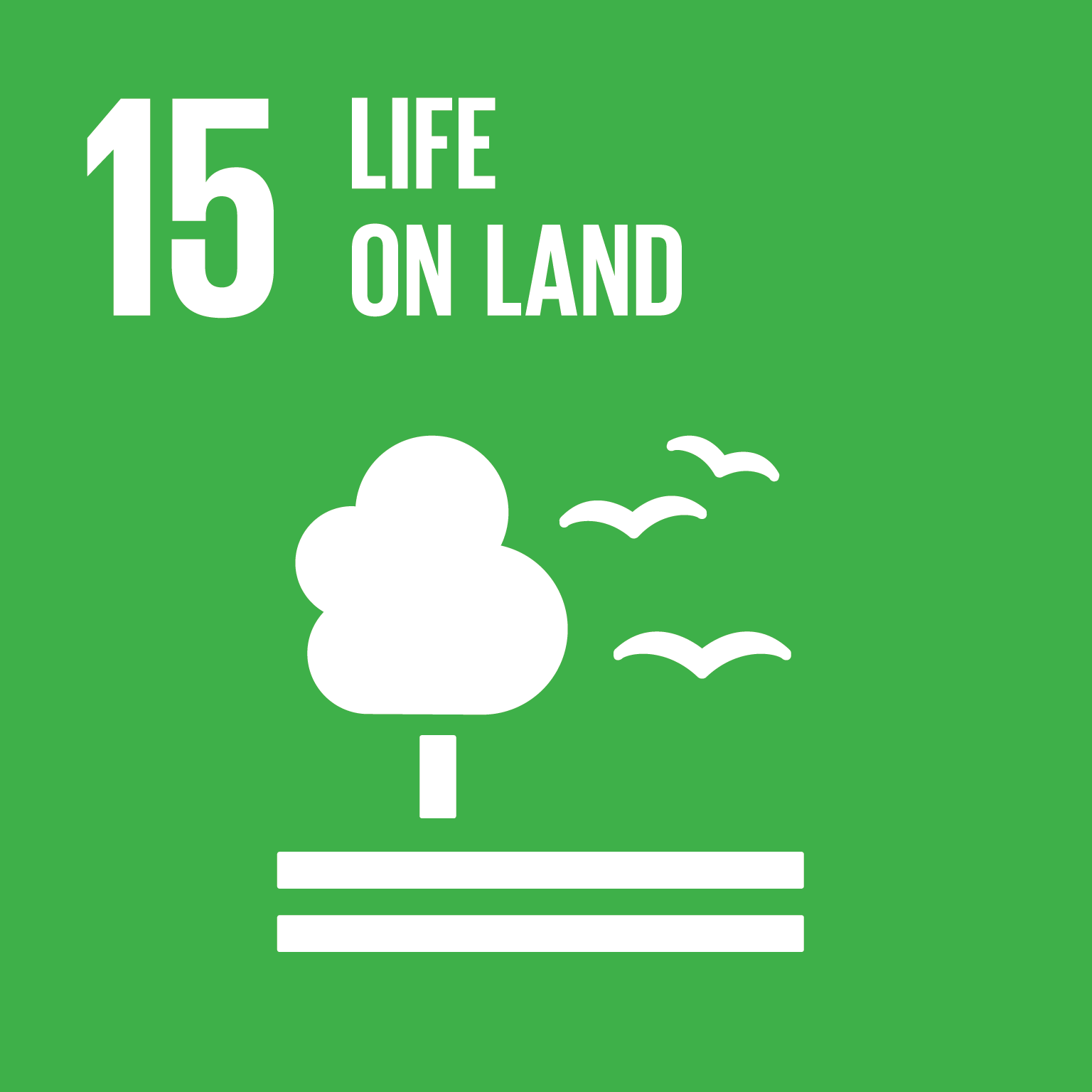
Goal 15: Life on Land
Why is this important for sustainable development?
The Life on Land Sustainable Development Goal focuses on the environmental aspect of sustainability. For starters, we, as human beings, live on land which means that protecting our terrestrial ecosystems, particularly forests, is in our best interest. 80% of all terrestrial species live in forests so protecting the biodiversity and health of forests is essential to creating a healthier planet.
What progress has been made to achieve this goal?
The primary goal set by the UN is to protect, restore and promote sustainable use of terrestrial ecosystems. While deforestation has slowed and 98% of countries have adopted legislation to prevent and control invasive species, deforestation, forest degradation, loss of biodiversity, and ecosystem degradation persist and threaten our own well-being and survival.
Why it matters
Learn more about the importance of life on land.

Goal 16: Peace, Justice and Strong Institutions
Why is this important for sustainable development?
The Peace, Justice and Strong Institutions Sustainable Development Goal focuses on the social aspect of sustainability. Peaceful, just, and inclusive societies are necessary to achieve the sustainable development goals because freedom from violence and discrimination supported by strong, just institutions will both improve lives and our capacity for international collaboration.
What progress has been made to achieve this goal?
The primary goal set by the UN is to promote peaceful and inclusive societies for sustainable development and build effective, accountable and inclusive institutions at all levels. The COVID-19 pandemic has greatly slowed progress in this area as lethal violence, violence against women and children, human trafficking, bribery, and other conflicts continue to be widespread.
Why it matters
Learn more about the importance of peace, justice and strong institutions.
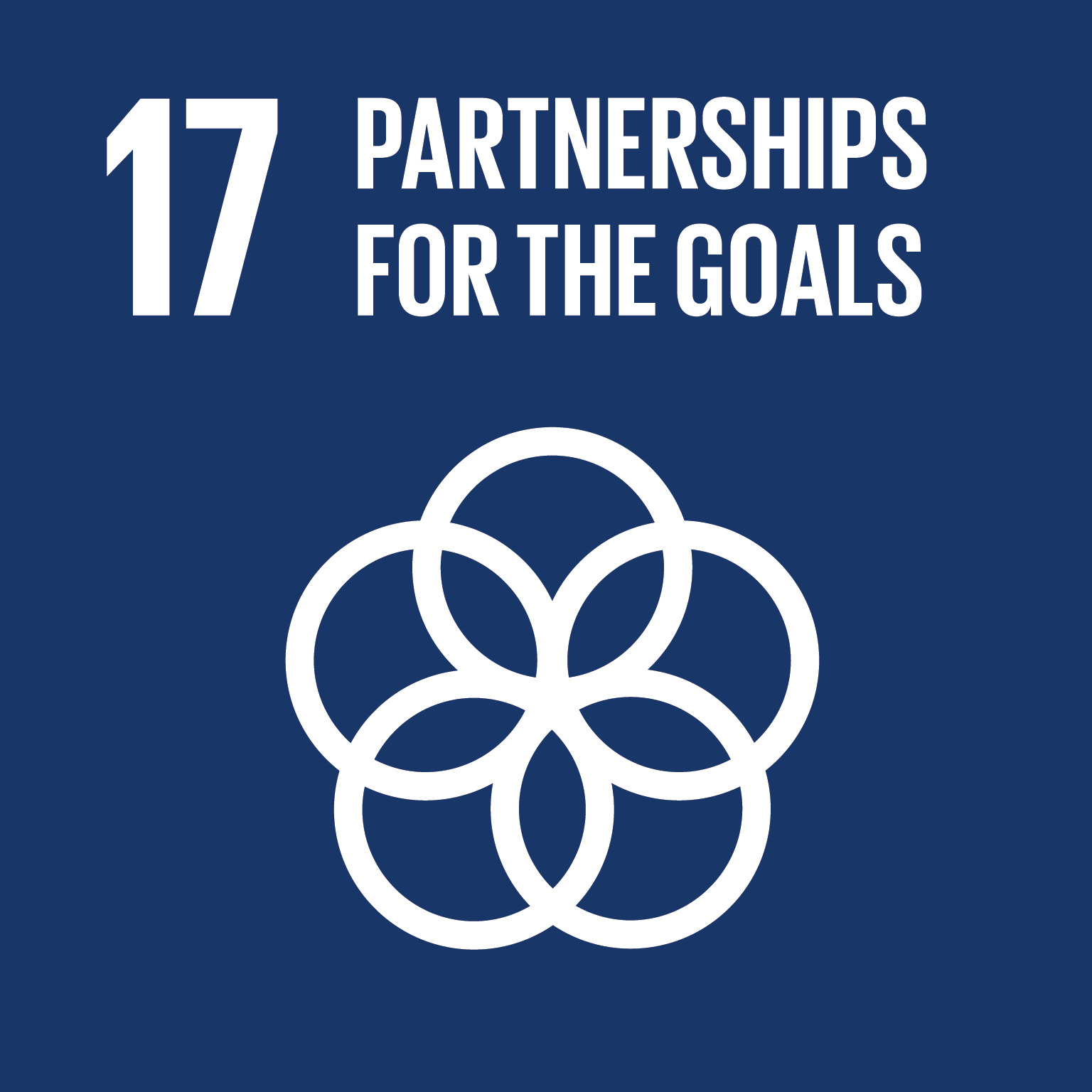
Goal 17: Partnership for the Goals
Why is this important for sustainable development?
The Partnerships Sustainable Development Goal focuses on all aspects of sustainability. It is important to remember that climate change is a global problem that requires a global solution. Efforts to become more sustainable and mitigate the effects of climate change will only be successful if there are international partnerships that create a global support network to reach these goals.
What progress has been made to achieve this goal?
The primary goal set by the UN is to strengthen the means of implementation and revitalize the global partnership for sustainable development. While the creation of these sustainability goals through the UN is a step in the right direction, much still needs to be done with regard to sharing financial, technological, and trade resources as well as data and accountability information.
Why it matters
Learn more about the importance of partnership for the goals.
If you are interested in learning more about the Sustainable Development Goals and the progress that has been made globally to achieve them, check out the links for each individual goal or go to the United Nations’ The 17 Goals!
